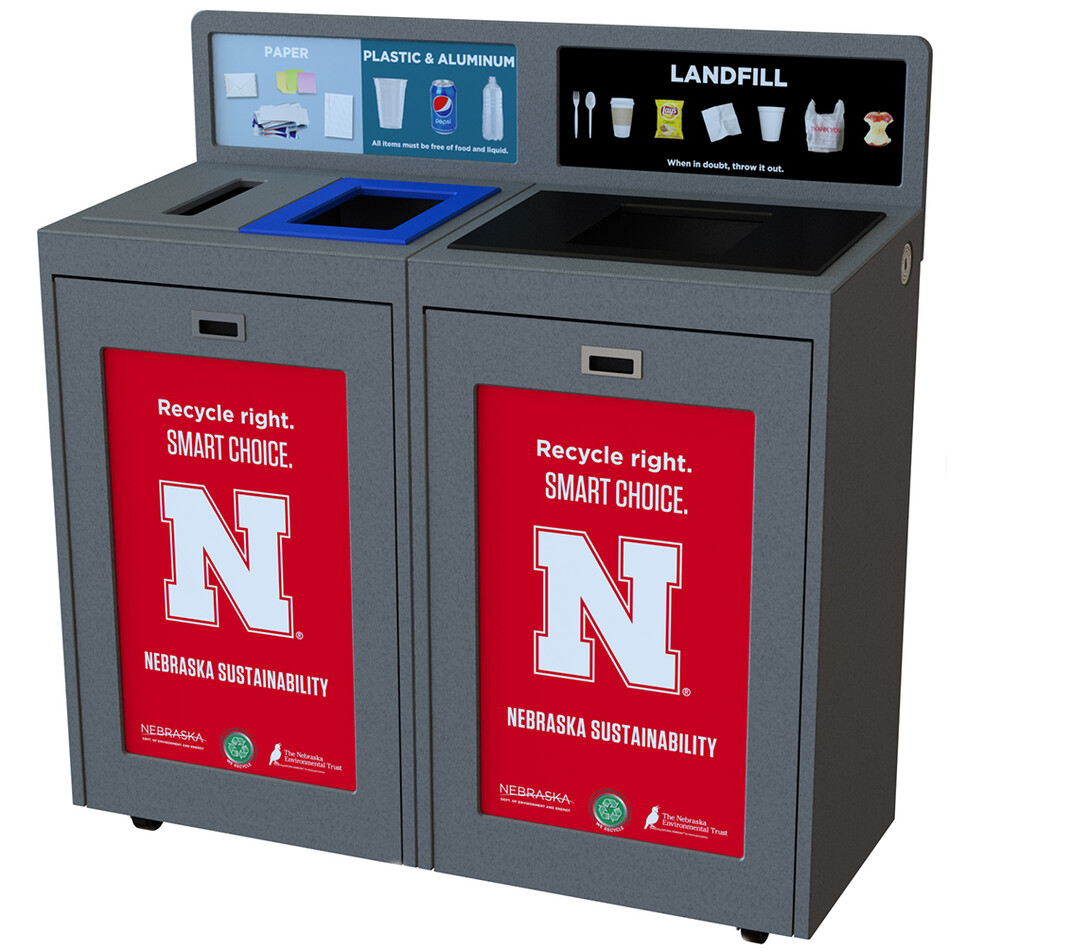
University of Nebraska–Lincoln leaders have approved a first-of-its-kind master plan that links sustainability practices, teaching curricula, research expertise and wellbeing programming.
The Environment, Sustainability and Resilience Master Plan melds themes from the university’s N2025 strategic vision with United Nations Foundation’s sustainable development goals into a multi-phased path directed at greater integration of environmentally-friendly practices and resiliency programming across the institution.
The master plan was generated by the Chancellor’s Environment, Sustainability and Resilience Commission, which includes nearly 70 members representing student, faculty and staff. The group was formed in answer to a directive from Chancellor Ronnie Green in his 2019 State of the University Address. The commission is led by co-chairs Prabhakar “Prabs” Shrestha, director of sustainability, and Dave Gosselin, director of the sustainability initiative and environmental studies.
Chancellor Ronnie Green and other senior leaders gave final approval to the plan on Nov. 4.
“The goals and objectives outlined in this plan are ambitious and provide a strong vision for our university,” Green said. “It gives our students, faculty and staff an opportunity to harness their creativity and build toward a healthier, sustainable and resilient campus in which Huskers can learn, create, work and live.”
Gosselin said the master plan is designed to take a holistic approach.
“It addresses environment, sustainability and resiliency issues from a variety of perspectives,” Gosselin said. “This unique approach allows the entire university system to play a role — from teaching, learning, research and outreach to how the individual interacts with the existing campus environment.”
The master plan features 10 goals, each offering incremental steps and aspirational outcomes to guide decisions. Aspirations within the goals include:
Creating a Center for Sustainability and Community Innovation to serve as a one-stop shop providing teaching, learning, community engagement and related research resources to the academic community and university stakeholders.
Become a net-zero campus in terms of carbon dioxide emissions and energy use by the year 2050, including the launch of a carbon commitment task force to guide university efforts.
Create and promote a health and wellness program for employees.
Establish a Center for Mindfulness Education and Research that includes interfaces with Husker athletics programs and community organizations, including Lincoln Public Schools.
Launch a sustainability revolving fund to drive innovation and provide small loans for related programs and offer a return on investment. This includes establishing a scholarship for faculty, staff and students and the creation of an annual award for sustainability research.
Other goals within the plan are focused on landscape practices on campus; sustainability and resilience work built into course curricula; working with the campus community and city to develop a multi-modal and sustainable transportation plan; becoming a zero-waste campus by 2030 (non-research projects); strengthening waste management policies; and improve water use efficiencies across the university.
Along with links to the N2025 strategic vision and the university’s land-grant mission, proposals within the master plan were guided by six principles that Green submitted to the commission during a workshop held in August 2019. The workshop was attended by members of the commission and Green’s senior leadership team.
“We’ve spent hundreds of hours creating this master plan and through the entire process, we’ve had full-campus involvement — from top-level administrators who approve programs down to the people in the trenches actually doing the work,” Gosselin said. “Overall, it’s been an inclusive process focused on building momentum toward greater sustainability and wellbeing across the entire university.”

Even before receiving final approvals, the plan influences sustainability and wellbeing initiatives on campus. An example of that influence is the new recycling pilot program launching later this month in eight campus buildings.
“It’s incredible to see this plan already having an impact before it was released to the entire campus,” Gosselin said. “That’s a direct reflection of the strength of this plan and the collaboration that went into creating a holistic approach.”
Moving forward, the Chancellor’s Environment, Sustainability and Resilience Commission will form a team of responsible parties from across the university to implement the plan. The responsible parties will provide quarterly updates to the commission.
“We have an entire accountability framework outlined in the plan,” Gosselin said. “Ultimately, our goal is to generate an annual state of the environment report for the entire university. This report will highlight progress and direct measures as we move forward.”
Shrestha said the primary goal of the plan is to help the university become more efficient, resulting in cost savings, increased wellbeing for students, faculty and staff, and a more positive impact on the overall environment.
“In the last few years, the university has made great strides in sustainability and wellbeing,” Shrestha said. “And, with this plan in place, our institution has an opportunity to go to the next level, pursuing bold, new initiatives.
“Implementation of this plan has the potential to put Nebraska among the best of the best in terms of teaching, research and practicing sustainability and wellbeing initiatives.”
The Environment, Sustainability and Resilience Master Plan is available for review online. Details on the Chancellor’s Environment, Sustainability and Resilience Commission are available here.







